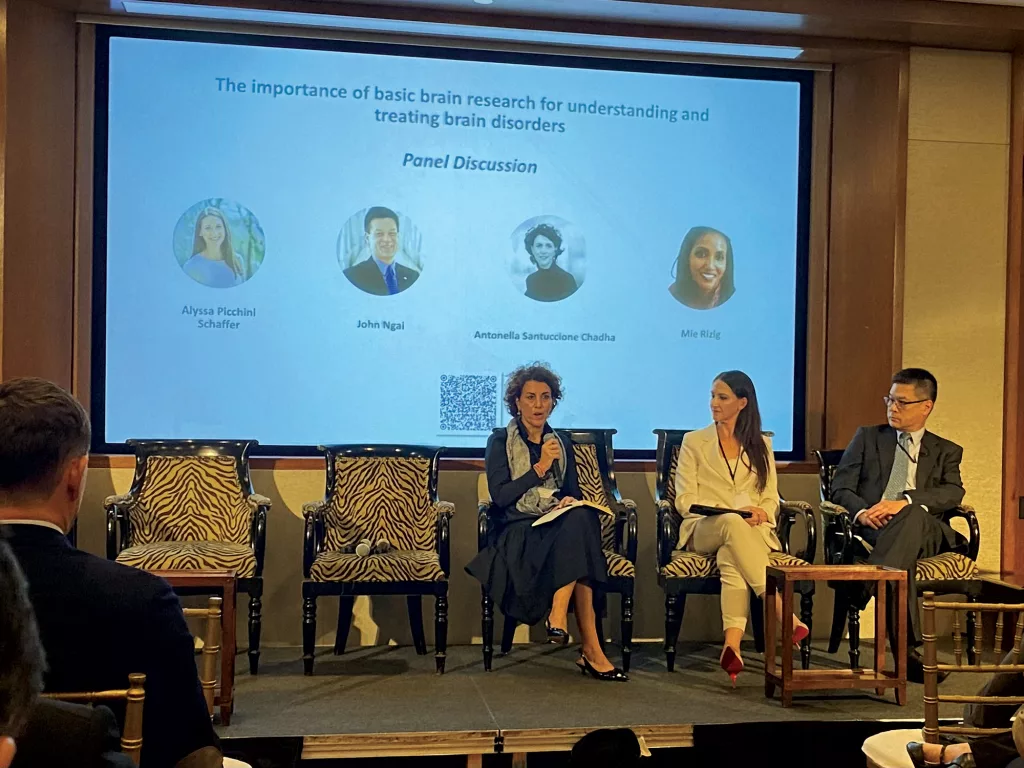Precision Medicine and Gender Disparities: Research Promotes Major Advances in Brain Health
In the ever-evolving world of healthcare, precision medicine has taken centre stage — and for good reason…
Precision medicine can tailor strategies to suit individuals, leveraging unique genetic, environmental, and lifestyle factors. It reduces the burden of chronic diseases, enhances the effectiveness of treatments, and has cost-saving potential.
But gender disparities persist in the healthcare field, particularly in neuroscience. Research has shed light on crucial distinctions between male and female brains, impacting cognition, behaviour, and disease responses. These disparities extend to the prevalence and symptoms of various brain disorders, influenced by biological and environmental factors. Recognising and addressing these differences is a healthcare imperative, and an opportunity to enhance outcomes and equity.

78th United Nations General Assembly in New York: Science Summit
In some specific diseases, sex and gender play a significant role.
Alzheimer’s
- Women make up nearly two-thirds of all Alzheimer’s patients.
- Women tend to experience more severe symptoms and faster disease progression.
Multiple Sclerosis (MS)
- MS is more common in women: a ratio of 3:1.
- Women with MS face extra complications due to hormonal changes.
Migraines
- Again, more prevalent in women, and the frequency and severity vary with hormonal fluctuations.
Depression and Anxiety
- Women are more likely than men to experience depression and anxiety disorders.
Gender disparities are notable in these conditions, as well as the nature and duration of symptoms.
The Women’s Brain Project (WBP), a Swiss-based non-profit, investigates sex and gender determinants on health, with a focus on brain and mental health. WBP champions the inclusion of biological (sex) and socio-cultural (gender) aspects across all healthcare levels.
The overriding mission is to leverage sex and gender disparities as gateways to precision medicine, identifying biomarkers, risk factors, symptoms, disease progression, and treatment responses.
At the Science Summit of the 78th United Nations General Assembly in New York, global leaders rallied to the brain health cause. Policymakers, researchers, clinicians, industry leaders, patient representatives, and non-profit organisations united to raise the issue’s profile on the UN agenda. Doctor Antonella Santuccione Chandha, CEO of WBP, spoke at the event and stressed the significance of comprehending the brain’s intricacies on the route to discovering effective treatments.
Santuccione Chandha announced there the establishment of the Women’s Brain Project Foundation, dedicated to operating the world’s first sex- and gender-precision research institute.
It will rely on cross-functional expertise, engaging experts from various domains to collaborate on innovation and research. The goal is to ensure that sex and gender are considered in advances in precision medicine.
The summit was also used to launch the Global Brain Capital dashboard by Rym Ayadi. The tool quantifies and tracks brain capital across dimensions, including cognitive skills, mental and physical health. Social capital is tracked at individual, community, country, and global levels — and it incorporates sex and gender as crucial variables.
The dashboard can help policymakers, researchers, industry leaders and civil society to gauge global brain health and develop beneficial interventions. It fosters a deeper understanding of sex- and gender-specific needs and challenges, paving the way for medical solutions that can lead to financial opportunities.
The Women’s Brain Project Foundation, in collaboration with partners in the Brain Capital Alliance, is leading this journey. Initiatives extend to the 2024 World Economic Forum in Davos, where the foundation will showcase the economic potential. Together, the various groups are poised to drive positive change, financial opportunities, and brain health worldwide. “The time for action in brain and mental health,” says the WBP, “is now.”
By Laura Castro-Aldrete and Antonella Santuccione Chadha
You may have an interest in also reading…
Barclays’ Libor Rate Fixing Leads to Resignations
Barclays last week agreed to pay $453 million to settle U.S. and British authorities’ allegations that the British bank tried
CBRE – Adapted Retail & Alternative Assets: Rental Trends Adjusting With the Times
Economic growth is driving increased demand for retail and alternative real estate assets, while spare capacity is gradually being eroded,
AIB: A New Name on the High Streets of Northern Ireland
Following a significant strategic investment, extensive research and an engagement programme, First Trust Bank in Northern Ireland has officially changed

















































































